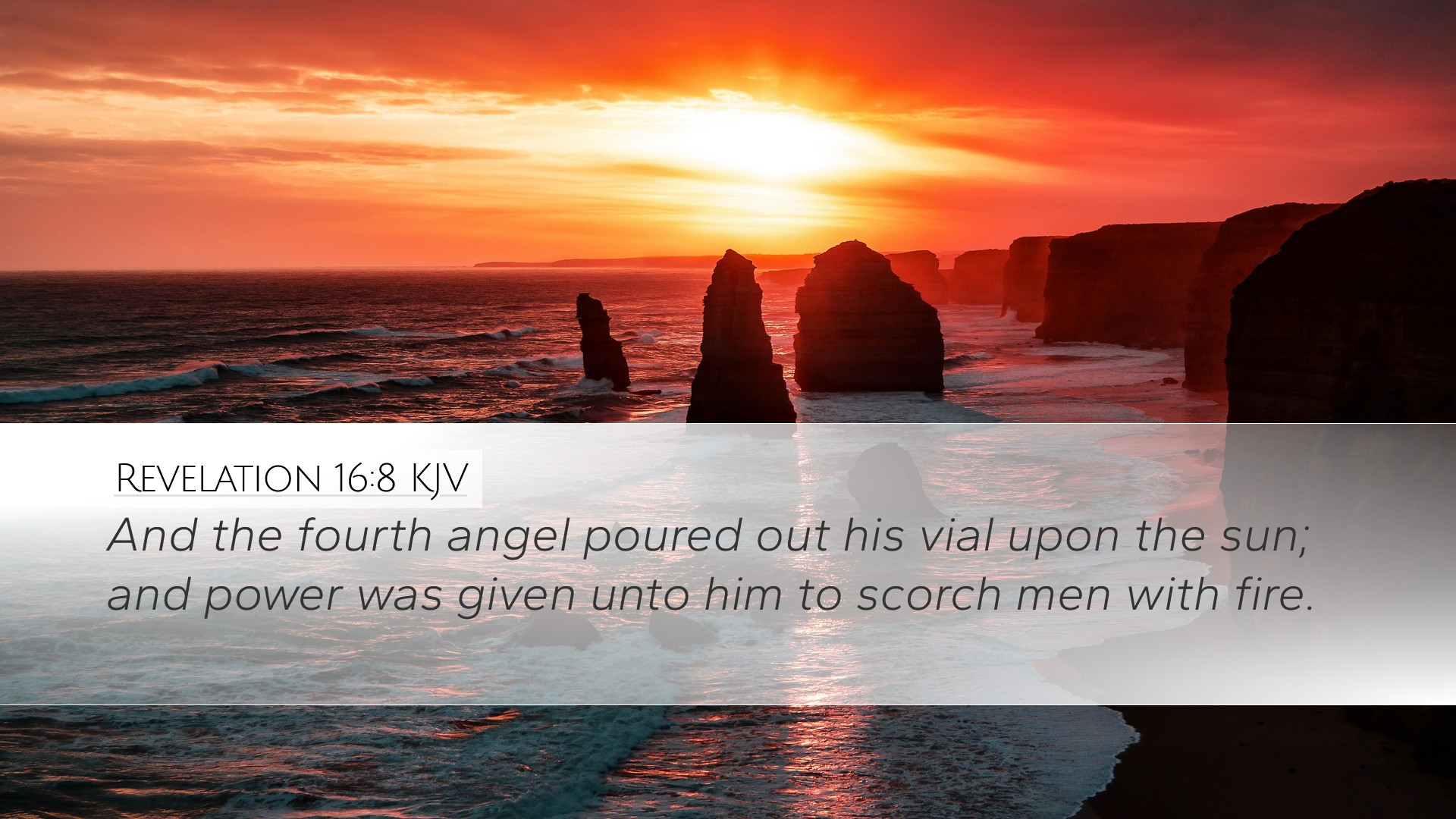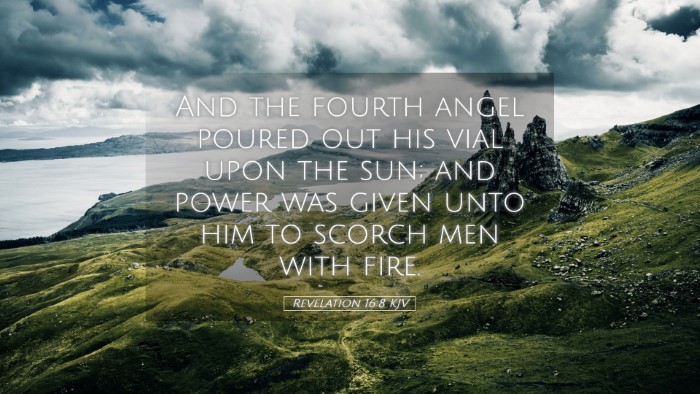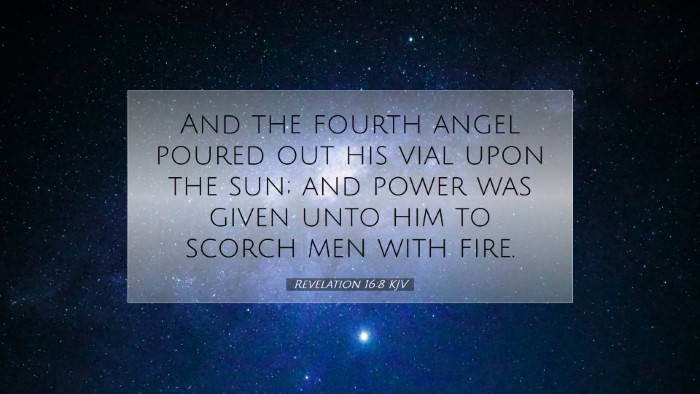Commentary on Revelation 16:8
Revelation 16:8 states:
"And the fourth angel poured out his vial upon the sun; and power was given unto him to scorch men with fire."
Introduction
This verse falls within the broader context of the seven vials or bowls of God's wrath that are poured out upon the earth as described in Revelation 16. The symbolism in this chapter conveys profound spiritual truths and apocalyptic images designed to communicate God's ultimate judgment against sin and the unrepentant. The focus of this commentary will combine insights from noted theologians and biblical scholars from public domain sources to explore the implications of this powerful image.
Contextual Analysis
In sequential order, the fourth angel's vial unleashes a significant judgment upon the earth. The infliction of scorching heat represents not only physical suffering but also serves as a stark symbolic gesture regarding divine wrath manifesting in a tangible form.
Theological Implications
- Divine Sovereignty: This passage emphasizes God's control over all creation, including the celestial bodies. The sun, often seen as a symbol of power and light, is now employed as an instrument of judgment, showcasing God's dominion.
- Judgment and Wrath: The scorching heat signifies the seriousness of divine judgment. Those who have rejected God’s grace face the consequences of their choices, reflecting His righteousness and justice.
- Call to Repentance: The severe punishments serve as a wake-up call. The imagery suggests that these judgments are not merely punitive but are intended to lead people towards repentance.
Commentary Insights
Matthew Henry’s Commentary
Matthew Henry notes that the pouring out of this vial signifies increasing severity in God's judgments. He highlights the scorching of men with fire as a representation of intense suffering, emphasizing that the judgment against the wicked is a necessary consequence of their sins. Henry writes that while the sun is considered a source of life, its transformation into an instrument of punishment elucidates how God's creations can be turned to fulfill His purposes of wrath.
Albert Barnes’ Commentary
Albert Barnes elaborates on the consequences of this judgment, exploring the idea that the scorching heat serves a dual purpose – punishing the wicked while also revealing their hardened hearts. Barnes suggests that the refusal of mankind to repent in the face of suffering reflects the depth of rebellion against God. This text serves to illustrate the clarity and inevitability of divine judgment coming upon those who have disregarded God’s commandments.
Adam Clarke’s Commentary
Adam Clarke delves into the symbolic nature of the sun in this passage. He posits that the imagery of the sun scorching men could metaphorically relate to the increase in sin and moral decay in the last days. Clarke highlights the spiritual dryness and barrenness that accompanies such judgment, suggesting that these divine appointments are not random but are deeply connected to the sinful state of humanity. He emphasizes the need for believers to remain vigilant and steadfast amidst such tribulations.
Applications for Today
The severity depicted in Revelation 16:8 carries important implications for modern readers:
- Awareness of God’s Judgments: This passage urges contemporary believers and non-believers alike to recognize the seriousness of sin and its consequences.
- Importance of Repentance: Just as God called for repentance during biblical times, the necessity remains today. The continual call to return to God stands firm amidst global turmoil.
- Hope Amid Judgment: While this verse highlights divine wrath, it also points to the ultimate hope found in Christ, where grace is offered in the midst of judgment.
Conclusion
Revelation 16:8 serves as a profound reminder of the holiness of God and the seriousness of divine judgment. Insights from revered commentators like Matthew Henry, Albert Barnes, and Adam Clarke provide a multi-faceted understanding of this verse, urging those in ministry, study, and scholarship to consider the weighty implications of the text. As we reflect upon the themes of sovereignty, wrath, and the call for repentance, may we be led to both a recognition of God’s authority and a deeper yearning for His mercy.


